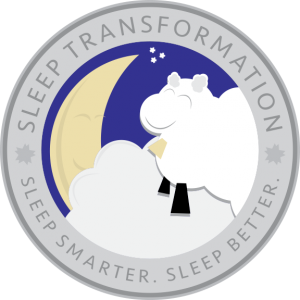As you may know, Work/Life is partnering with RFC and HCC to launch a Sleep Transformation next month, so I thought I would focus this month’s blog on the importance of sleep for older adults with dementia.
We are all aware of the importance of a good night’s sleep, however, it is particularly important for older adults. Concentration and memory formation are both improved with healthy sleep, and our immune system receives a boost as well, which improves our ability to resist illness.
Sleep problems are often present with individuals with dementia. These problems may include:
- Changes in the sleep-wake cycle (which result from shifts in the body’s inner clock known as the circadian rhythm system).
- “Sundowning” is a term used to describe episodes of restlessness or agitation in the late afternoon or early evening. This can result in napping during the day and wakefulness at night.
- Other medical conditions often affect sleep. Individuals with dementia may have secondary health issues that are associated with sleep difficulty. One example would be urinary conditions which cause frequent trips to the restroom during the night.
- Other sleep problems such as sleep apnea and restless leg syndrome are often more frequent with older adults.
In order to accurately diagnose and treat sleep problems, it is important to identify all of the contributing factors. Here is a list of questions that a group of geriatrics experts recommends to assist the health care provider in evaluating the sleep problem:
- What time do you normally go to bed at night? What time do you normally wake up in the morning?
- Do you often have trouble falling asleep at night?
- About how many times do you wake up at night?
- If you do wake up during the night, do you usually have trouble falling back asleep?
- Does your bed partner say (or are you aware) that you frequently snore, gasp for air or stop breathing?
- Does your bed partner say (or are you aware) you kick or thrash about while asleep?
- Are you aware that you ever walk, eat, punch, kick, or scream during sleep?
- Are you sleepy or tired during much of the day?
- Do you usually take 1 or more naps during the day?
- Do you usually doze off without planning to during the day?
- How much sleep do you need to feel alert and function well?
- Are you currently taking any type of medication or other preparation to help you sleep?
- Do you have the urge to move your legs or do you experience uncomfortable sensations in your legs during rest or at night?
- Do you have to get up often to urinate during the night?
- If you nap during the day, how often and for how long?
- How much physical activity or exercise do you get daily?
- Are you exposed to natural outdoor light most days?
- What medications do you take, and at what time of day and night?
- Do you suffer any uncomfortable side effects from your medications?
- How much caffeine (eg, coffee, tea, cola) and alcohol do you consume each day/night?
- Do you often feel sad or anxious?
- Have you suffered any personal losses recently?
Approaches for improving sleep will depend on the underlying cause ; however, there are some general coping strategies for dealing with sleep issues as well as sundowning.
If the person is awake and agitated:
- Calmly approach him or her
- Ask if there is something specific that they need/want
- Without being confrontational, gently remind him/her of the time
- Use a reassuring tone to tell them things are ok – avoid arguing
Other strategies for improved sleep:
Create a relaxing and safe sleep environment. The sleeping area should be at a comfortable temperature (typically cooler for optimum sleep). Safety features such as door/window locks, as well as sensors and motion detectors could be considered in the event the person has a tendency to wander at night.
If possible, maintain an evening routine including meal time, bathing, and bedtime.
Seek morning sunlight exposure and try to limit napping to 30 minutes during the day, if possible.
Include exercise and challenging activity in the morning or earlier in the day, such as doctor appointments and other trips.
Try to keep the evening meal simple and avoid stimulants such as caffeine, nicotine, and alcohol.
If there are periods of wakefulness, discourage TV watching.
If medication is used, be mindful of the mantra “start low and go slow”. Sleep medications for individuals with cognitive impairment can carry significant risk, as the sedating effect can cause confusion and increase fall risk.
Do you have strategies that have been helpful for your family member with dementia? If so, please share them in the comments.
